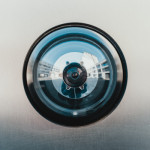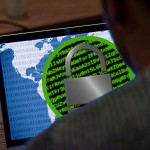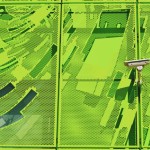Enhance Your Home Security
Home burglaries happen more often that we would like to think. While we want to protect our home, families, and our possessions, our security measures may be lacking. Here are some ways you can enhance your safety and secure your home.
Landscape
Walk around your property to identify and eliminate potential hiding spots for thieves. Clear away any overgrown areas and maintain your landscape.
Police
Speak with your local police department as they can offer insight on break-in trends in your area.
Neighbors
Take the time to get to know your neighbors and engage with people in your neighborhood. You can use each other as allies to watch for any suspicious activities or keep a look out when you’re away.
Lighting
Outdoor lighting can play a key role in your home security. Installing motion-sensor lights around your property can enhance your safety and prevent your home from being targeted by thieves. For indoor lighting, you may want to consider implementing timers or smart light bulbs that can be controlled remotely. This will allow you to make it appear as if you are home even when you’re away.
Shopping
Online shopping is convenient, but can also draw the attention of thieves. To deter porch pirates, have your packages sent elsewhere or require a signature for delivery. In addition, your trash may give away that you recently purchased a new computer or flat-screen television. Be sure to break down boxes and keep your trash inconspicuous.
Safety Routine
Establish a routine of regularly locking all doors, shutting windows, and arming your alarm system when you leave your home. And avoid leaving a spare key outside as thieves are privy to common hiding spots. Instead, leave a spare with a trusted friend or neighbor.
Visibility
Be sure that you can see who is at your front door without opening it, whether it be through a peephole, window, or a video doorbell. Do not place valuables where they can be seen from the street and keep your alarm system panel out of sight from windows so that people outside cannot see you arming it.
Outdoor Valuables
Anything outdoors is an easier steal. Sheds, garages, and other outdoor buildings are prime targets, as they are usually easier to access and contain valuables. Be sure to secure your grill, lawn mower, bicycles, and other outdoor gear.
Vacation
Going away? Hold your mail and deliveries, and ask a friend or neighbor to remove flyers from your property. If it’s for an extended period of time, arrange for snow removal and lawn mowing to keep up the appearance that you are home.
Share your own home security tips with us on Facebook, Twitter, LinkedIn, and Pinterest.
Browse our stock of quality surveillance equipment and security cameras online at SecurityCamExpert.com. Contact us at 888-203-6294 to request a free quote or schedule a site survey.
Secure Your Home
When was the last time you evaluated your home security? With summer, and likely a vacation or two, around the corner, now is a great to time reassess your home security measures and upgrade or improve them as needed.
Doors
A surprising amount of burglars enter homes through the front door, so be sure that all of your doors (especially the front door) are strong and secure. Inspect the door frame, ensure the hinges are protected, and if your door has a mail slot, make sure someone can’t reach through and unlock the door.
To further safeguard your doors and entryways, you can install a deadbolt and/or add a strike plate. You can even upgrade to smart locks or install a doorbell camera. And if you have any sliding glass doors, remember to reinforce them by using a window bar or dowel in the track. Or you can invest in a door sensor or glass break sensor, which will alert you if the door is opened or tampered with.
Windows
Another common entry point for burglars is windows. And unfortunately, window latches and locks can be flimsy and rather ineffective. To better secure your windows, install improved locks or key-operated levers, or implement window bars. You can even reinforce the glass with window security film and install window or glass break sensors. In addition, you can plant prickly bushes under first-floor windows, but be sure to keep them trimmed.
Lighting & Landscape
Intruders want to be as inconspicuous as possible, so why not shine a light on them? Outdoor lighting can help to keep burglars at bay. Light up your yard (front and back) and pathways and place lights near the garage or other outdoor structures. Motion-activated lighting, solar-powered lights and timers can be helpful as well.
While the lights help to prevent burglars from hiding in the darkness, maintaining your landscape plays an important role, too. Be sure that trees and shrubs are trimmed down to eliminate any hiding spots. If there are trees near windows, remove them or add extra security to those windows. And remember to put away stools, ladders, and other tools and lock your gates and sheds.
Garage
An attached garage offers another way to access your house. But even if it is detached, burglars know there’s likely good stuff stored in there. You should always lock all doors to the garage, both interior and exterior. Consider keeping your garage door opener in the house. That way, a burglar can’t steal it from your car. You may even consider upgrading to a smart garage door opener, which alerts you when the door is opened or closed and enables you to control it remotely.
Wi-Fi Network
Securing your home wireless network is also an important part of your overall home security. To keep hackers off your home network, be sure to secure your wireless router and enable WPA (Wi-Fi protected Access) or WPA2 encryption. You should also rename and hide your network, use a firewall, install antivirus and anti-malware protection, and always create strong passwords and change them periodically.
Security System
These days, you can find a home security system that suits your needs and budget. Depending on your unique situation, you may consider DIY versus professional installation, along with the upfront and monthly costs, and the different features offered.
If they are not part of your security system, you may want to install security cameras outdoors, indoors, or both. Some features to look for include remote access, motion detection, night vision, and Wi-Fi capability. If you need assistance, you can visit SecurityCamExpert.com or call us at 888-203-6294.
Your security is our priority. Contact us to learn more about our products and installation services, site surveys, or to request a FREE quote! You can also connect with us on Facebook, Twitter, LinkedIn, and Pinterest.
Protect Your IP Surveillance System
These days, IP security cameras are much easier to use and are more commonly utilized for home security. Whether home owners want to watch their property or their pets, IP security cameras seem to be the surveillance solution of choice.
Unfortunately, these home security systems are often targeted by hackers and bots. To better safeguard your IP cameras and privacy, check out these helpful IP security camera tips.
Update Firmware
Modern IP security cameras provide user-upgradeable firmware. When a security vulnerability is found, the manufacturer will fix it by issuing a firmware update. If your cameras are operating with an older version, they may be vulnerable to exploitation from hackers or online voyeurs. Always be sure that your firmware is up to date and routinely check for updates to protect your system.
Keep Cameras Local
The concept is simple – If you are worried about your live feed ending up on the internet, do not connect your cameras to the internet.
To protect your privacy, keep your security cameras on a local network and assign them non-routable internal IP addresses (ex. 192.168.0.5 or the like). But even then, your cameras may still be exposed by camera software that sets up port forwarding or uses UPNP to expose your cameras to the internet. Make sure your cameras are set up on local-only mode – consult your installer or check the manufacturer’s website to learn how.
Assign Passwords To Cameras
All too often, users forget to add password protection on their IP cameras, and sadly, this is not usually turned on by default. Without this, IP cameras are left wide open and vulnerable.
Luckily, most cameras offer at least some form of basic authentication, and although it may not be much, it is better than nothing. Remember to protect your cameras by assigning a username and strong password and changing it periodically.
Change Defaults
We cannot stress this enough – Always, always, ALWAYS change the default usernames and password for your devices. In case you didn’t know, the default admin name and password for your IP camera is usually available on the manufacturer’s website in the support section. That said, if you don’t change these defaults, anyone could potentially access your security system, view your feeds, and control your cameras.
WPA2 Encryption
If you’re using a wireless camera, you should only connect it to a WPA2-encrypted wireless network. This will minimize the risk of wireless eavesdroppers connecting to your network and accessing your video feeds.
Be Mindful Of Locations
Don’t place IP security cameras in areas of your home that you wouldn’t feel comfortable with strangers seeing. Regardless of the security measures to protect your camera feeds, there is always a possibility of getting blind-sided by a Zero-Day vulnerability that hasn’t been found by the manufacturer yet.
Share your own tips and experiences with us on Facebook, Google+, Twitter, LinkedIn, and Pinterest. For a wide selection of IP security cameras and more, visit SecurityCamExpert.com or call 888-203-6294 today!
Home Security For The Holidays
The holidays are here, and whether you’re hosting the festivities or going out of town, you want to make sure your home is secure. First and foremost, if you don’t have them already, you may consider installing a home security camera system. A home security system will alert you if and when your alarm system is triggered or motion is detected, and security cameras can record pertinent footage as necessary. Should these alerts indicate criminals are on or around your premises, you can quickly contact authorities. For those of you who will be away for the holidays, an empty home is prime target. You should employ measures to make it seem like someone is home. The following are some security tips and advice to safeguard your property and avoid being targeted by thieves.
Hire a house or pet-sitter.
If possible, and if you feel comfortable with it, hire an overnight house-sitter. Before hiring, be sure to do a background check. Depending on your needs and instructions, duties may include mowing the lawn, taking the trash out, shoveling the driveway, or feeding and walking pets. If you are not comfortable with a stranger staying in your home, you may want to enlist a trusted friend or relative to either stay at your home or stop in regularly to handle these tasks.
Put your mail/newspaper subscription on hold.
Nothing screams “we’re away” more than mail and newspapers piling up. Ask your post office to hold your mail or have someone collect and sort your mail daily. If you have a newspaper subscription, pause delivery or inquire about switching to an online subscription.
Make use of curtains.
As previously mentioned, for burglars, there’s nothing more alluring than an empty home. For small windows, you want to close the curtains to shield your home from prying eyes. But you also want to keep some curtains ajar as curtains closed all day and night may look suspicious.
Set up sensors and timers for lights and sprinklers.
Along the same lines, invest in timers and sensors that can turn on and off at random intervals or that you can control remotely. These can help with the illusion that someone is home and are more cost and energy efficient than leaving your lights on.
Unplug electronics.
Avoid any potential accidents by unplugging your electronics and appliances. That way you can rest easy knowing you didn’t accidentally leave something on.
Leave a radio on.
Much like the lights make it appear that someone is home, the sound of a radio will do the same. An inexpensive, battery-powered radio should suffice.
Turn down the doorbell volume.
Some burglars are bold and will go so far as to ring the doorbell to confirm whether someone is home or not. If you lower the volume of your doorbell, and possibly have a radio on, they might assume the homeowners just can’t hear someone at the door.
Don’t leave spare keys at home.
Hiding keys around your home never a good idea when you’re away. Be sure you’ve collected all your keys before you leave. If you worry about losing them while on vacation, leave them with a trusted family member or neighbor.
Double and triple-check your doors.
You want to check all your doors and windows and any other point of entry before you leave to ensure they are locked and secure. Be sure your locks are working properly. If possible, install two or three locks on your main and back doors for added security.
Light up your surroundings.
Keeping the exterior of your home well-lit will help to keep intruders away. Most like to sneak around in the dark so installing a few motion-sensitive lights around your home should deter them from approaching.
Be wary of sharing information.
Social media is a fun way to keep your friends and family up-to-date on what’s going on in your life. Unfortunately, thieves like to watch social media for any easy targets. Try to avoid announcing when you will be away, constantly checking in and sharing status updates about your trip, especially if your accounts are public.
Invest in a security safe.
A quality safe hidden in your home can keep your valuables (ex. jewelry, important documents) safe. A safe will reduce the chances of burglars making off with anything valuable. A secure combination can stall them until police arrive, and bolting your safe down will add extra security.
Don’t leave a portable GPS in the car.
These days, most cars have built-in GPS systems, but if you utilize a portable GPS, do not leave it in plain sight. This is especially important if you’re leaving your car at the airport or somewhere else. Often times, when thieves break into your car and access your portable GPS, they may figure out how to get to your unattended home.
Share your own home security tips with us and your peers on Facebook, Google+, Twitter, LinkedIn, and Pinterest!
For a great selection of security cameras and CCTV surveillance equipment, visit SecurityCamExpert.com. Call 800-203-6294 to speak with a representative and inquire about our free quotes and site surveys.
More Than Just Cyber Security
When running an online business, one of the most important aspects is security. Aside from protecting your company data, customers want to feel secure and know that they are safe when connecting and shopping on your website. Things like SSL and encryption are standard for any legitimate ecommerce business.
Unfortunately, small businesses with physical locations sometimes overlook the proper security measures, which can end up hurting the company in many ways.
Build confidence with your consumers by employing smart security practices with both your physical locations as well as your online presence.
Benefits Of A Secure Business
By securing your business, first and foremost, you are increasing safety for your employees and your business overall. When taking the appropriate measures, you can create a cohesive team and a sense of belonging among your staff. Applying on-premise security measures delivers the message that you value your employees and are concerned for their safety. In doing so, you are also improving job satisfaction, which can lead to employee retention.
Aside from improving employee morale, securing your business shows your customers that your staff and brand are worth protecting. Security methods also convey professionalism and help to build trust with your customers. By strengthening the legitimacy of your company, you are building a strong foundation for your business.
So how can you improve security in your business? Here are a few things you can implement to get started.
Access Control
One of the most effective ways to protect your business is to control who gets in or out. Make it harder for unauthorized guests to gain access by graduating from a simple lock and key to access control cards. They are much harder to duplicate than keys, and when someone leaves the company or you need to revoke access to one person for whatever reason, all you need to do is change the database – no need to change the locks or the entry code.
Photo ID
Adding photos ID cards or badges will help your customers clearly identify your team members, as well as promote value amongst your team. It also adds an additional layer of security in helping to identify who should and should not be on site. It may prove beneficial for businesses to invest in their own ID card printer to avoid any possible counterfeits.
Easily Identify Visitors And Contractors
If left to their own devices, visitors and contractors may pose a risk in your building. Make sure you have a check-in system as well as photo pass and color coded lanyard so that everyone on the team can easily identify who’s who. Your team should also know the protocol for when an intruder is on the premises.
Secure Networks
Although we are mainly focused on physical security, it is worth mentioning that cyber security is also of the utmost importance. These days, it has bearing on your physical security as well. Strong passwords, multi-step authentication and security from the cloud are smart and simple ways to minimize risks for your business.
Security Culture Among Team
Your team should have a strong knowledge of your security procedures. You should have security specialists analyze your business needs and assist you in creating clear, actionable policies for your employees to follow. Once implemented, these should be reviewed for all employees so that your team is on the same page and understand the company’s security policy.
Security procedures can play a crucial role in building a legitimate, successful business. What security measures do you implement to safeguard your business? Share with us on Facebook, Google+, Twitter, LinkedIn, and Pinterest.
Contact us at 888-203-6294 or visit SecurityCamExpert.com to learn more about our CCTV surveillance packages, site surveys, and installation services for your home or business today!
Simple Security Measures For Your Business
Despite the fact that businesses are four times more likely to be burglarized than residences thanks to their computers and electronics, it seems very few small businesses employ appropriate security measures. According to Security Magazine, only 31% of small businesses take the necessary steps to protect themselves.
An unfortunate example of lax security is the former office building of Draft Sharks, chosen because of its alarm system. The subscription-based fantasy football advice site learned the hard way that, although the building was alarmed, their particular office was not. Thieves broke into a window of an adjacent restaurant and were able to break into the Draft Sharks office. While $1000 worth of stolen computer equipment may seem like a relatively minor loss, the data on those machines was worth much more.
After this event, Draft Sharks changed their ways and adjusted their security measures. Now, nothing of value is stored on-site. Work laptops are taken home daily and everything is stored in the cloud.
You do not necessarily need to take drastic measures to protect your business. Even the smallest changes in security can produce great benefits. Here are some smart yet simple ways to improve your business security.
Better Door Locks
Your door locks often act as your first line of defense. If you have a weak lock, criminals can easily pick it and break in. Choose a lock that is strong and impenetrable. With so many more advanced and smart locks on the market now, you are sure to find one that will suit your needs and protect your business.
Improved Lighting
Bright, illuminated areas make it hard for criminals to creep around. Keep the exterior of your property well-lit after hours to prevent thieves from targeting your business. You may also want to consider keeping the interior lights on as well. That way, it is much more obvious when someone has broken in.
Security Cameras
Video surveillance, whether monitored in house or by a professional service, will keep you alert and aware of what’s going on within your business. Should something occur, you can provide video evidence to law enforcement.
Bolted Down Safe
If your clients demand confidentiality, a heavy, relatively inconspicuous, fireproof safe bolted to the ground may be a sound investment. It provides a place for you to store sensitive documents away from danger and the wrong hands.
Securing Digital Assets
Aside from your physical equipment, your data needs security as well. By storing your data in the cloud, you may still access your files in case your equipment is damaged or stolen, and the cloud also offers encryption for added security.
As you can see, business security can be simple and easy. There are plenty of cost-effective options to secure your company data and equipment. Share your tips for business security with us on Facebook, Google+, Twitter, LinkedIn, and Pinterest.
For cost-effective, quality security cameras and surveillance packages, feel free to visit SecurityCamExpert.com and browse our selection. To learn more about our installation and support services, or to request a site survey or free quote, please call 888-203-6294.
Video Surveillance Technologies
Video surveillance has often proven helpful in producing evidence after a crime has been committed, and plays a role in deterring some incidents. But unfortunately, it seems video surveillance is no longer enough. Threats of violence and attacks have become more prevalent, forcing us to increase our security measures.
Containing and preventing violence has become rather costly over the years. In fact, the economic costs for prevention and recovery reached a peak high at $52.9 billion in 2014. This cost is far greater than the cost of carrying out the acts.
A real time solution is necessary. This can start with technology that has the ability to detect weapons while assessing the level of threat in the process. While this advanced technology could save lives, it could also save us billions of dollars by stopping these incidents before they happen.
For example, the fiscal impact of the September 11th attacks was found to have cost $55 billion in physical damage, $123 billion in economic damage, along with other expenses such as developing the Homeland Security Department and funding the war. The tragedy of lives lost and money spent to repair damages shows us that a more proactive approach, rather than reactive measures, would prove to be more effective.
It is estimated that the United States spends about $100 billion a year on counter-terrorism measures. With proactive efforts, these reactive expenses could possibly go toward other areas that need attention and improvement.
Aside from anti-terrorism, surveillance technologies can benefit many industries. For example, big retailers are investing more into their security. Wal-Mart, for instance, is in the process of deploying drones to monitor warehouse inventory. It is advances like this that get us one step closer to embracing futuristic machines.
What are your thoughts on the future of surveillance technologies? Share with us on Facebook, Google+, Twitter, LinkedIn, and Pinterest.
Shop our selection of CCTV security cameras systems and more at SecurityCamExpert.com. If you have any questions, please call 888-203-6294.
Online Security
Because of the convenience of the internet and our connected devices, more of us are turning to mobile apps and online solutions to conduct different types of business. However, with this added convenience comes greater risk. These security measures will help to keep your personal information safe.
Passwords
First and foremost, to keep your passwords safe, keep them to yourself. Another way to protect your accounts is to choose a password that is not easy to guess. Ideally, passwords should be at least 16 characters and comprised of a combination of numbers, symbols, uppercase letters, lowercase letters, and spaces. You will also want to avoid any repetition, dictionary words, usernames, pronouns, IDs, and any other default number or letter sequences.
Bruce Scheier, a computer security expert, suggests taking a personally memorable sentence and modifying it into a password. For example, the sentence “When I was 11, my sister made me fight the neighborhood bully” can be transformed into “Wiw11msmmFtnbully” (it should go without saying not to use this as a password). Instead, use this as a guide to create your own, unique password.
Also, using the same password for multiple accounts is a bad idea. Try to come up with a different password for each account. Worried you’ll have so many passwords that you’ll get them mixed up? Consider using a password manager to keep track of your different accounts and login information.
Email
Despite the abundance of social media and text messaging to keep people connected, email is still frequently used. And, unfortunately, it is still susceptible to hackers. Spam and malicious attachments can be rather damaging, yet we still click on things we shouldn’t. If something looks fishy, or is unfamiliar to you, do NOT click on it or open it. If it comes from someone you know, but you weren’t expecting it, confirm with the sender before taking action.
Online Shopping
The convenience of shopping from the comfort of your own couch or bed has its perks, but it also has its downfalls. When you use your credit card to shop online, there is a risk of your information being stolen. This shouldn’t deter you from shopping online, however, you should be cautious about when and where you use your credit card.
First, you should only use your credit card on websites with the prefix “https”. The “s” indicates that the site is using a secure protocol to encrypt communications between you and the website. If it is missing, you may want to proceed with caution. You will often see the “https” prefix when you are looking at sensitive information on online banking sites.
Also, avoid sending your credit card details on unsecured websites, via email or on any social media sites (even in private messages). Do not give more information than necessary, such as your date of birth or social security number. If you have never purchased from a vendor before, you should double check the physical address and contact information before completing your order. It is advised that you do not do your online shopping on public Wi-Fi or public computers, and it’s best to use a payment method with buyer protection. Lastly, always log out after ordering.
Account Protection
When you log in to a site with a username and password, this is known as single-factor authorization. While this method is secure on its own, two-factor authorization boosts security. With two-factor authorization, after entering a username and password, you are also asked to provide another security credential, such as a fingerprint or unique pattern. While a person can gain access to your basic login information, they would not be able to pass without the second unique security credential, safeguarding your account information.
Mobile Device
When it comes to your smartphone, it seems like a no brainer that you should set a screen lock code. That way, if your phone is lost or stolen, a stranger cannot instantly access all of your smartphone’s contents. For iPhones, you will want to set a 6 digit passcode – the added digits make it harder for someone to guess.
Aside from a screen lock code, you should disable any tracking options, whether it is tracking your location or the websites you visit for advertisement purposes, and prevent apps from uploading your information. You may want to block your phone number as well, since some companies may collect it and any information attached to it and use it for profit. Along the same lines, avoid answering spam calls as this may confirm that the number reaches an actual person and your number may be sold to other companies, thus increasing the number of spam calls and texts you may receive.
Use a recovery app in case of emergencies. Whether you simply misplaced your phone, forgot it in a public place, or someone stole it from you, recovery apps are designed for you to track the location of your phone and even lock or wipe your phone as necessary. If a Good Samaritan happens to stumble upon your lost phone, you may want to provide owner contact information, but keep it minimal. Stick to a first name and last initial, and a phone number of a friend or family member to contact if lost.
The best defense against losing or having your smartphone stolen is to keep it close to you. Store it in a tight, front pocket, or in a deep pocket of a big bag.
When there’s a will, there’s a way, and if a hacker is determined on getting his hands on your information, he just might. However, employing these security tactics helps you maintain control and makes it harder for hackers to reach that goal.
Have any other security tips you would like to share? Connect with us on Facebook, Google+, Twitter, LinkedIn, and Pinterest.
For great security cameras, surveillance packages, and more, visit SecurityCamExpert.com. Call 1-888-203-6294 to inquire about our free CCTV system quote and installation services.






